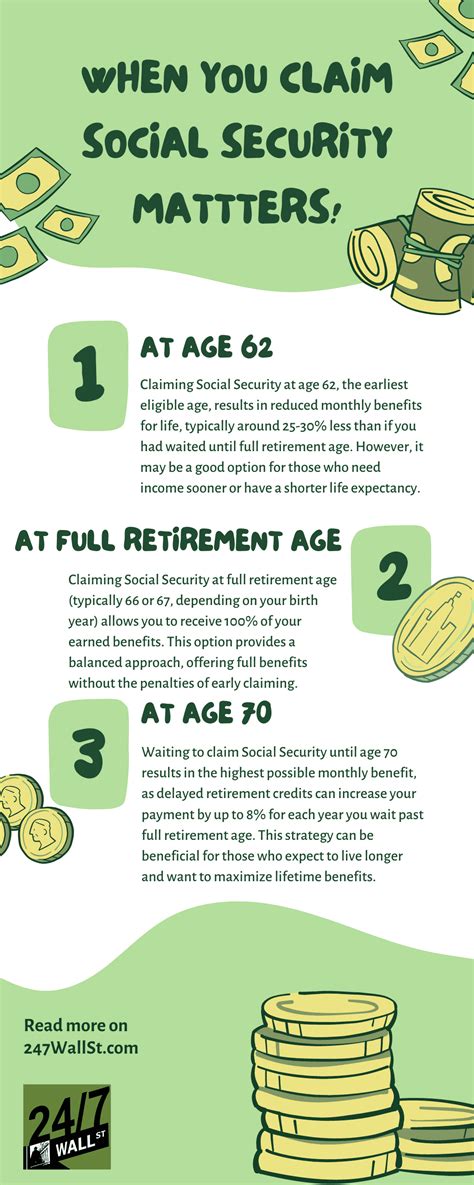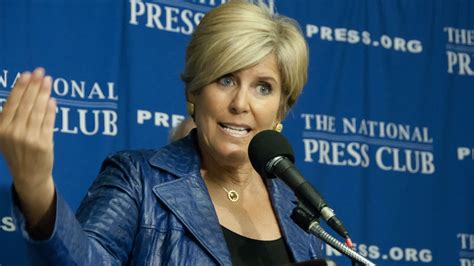
A New York City man lost his entire $114,000 retirement savings after a thief stole his paycheck from his mailbox and fraudulently cashed it, triggering a series of bank transfers that emptied his account.
David Baez of Washington Heights is battling to recover his life savings after the check theft, which he says highlights vulnerabilities in banking security and the ease with which criminals can exploit the system. According to Baez, the ordeal began in early April when his paycheck, which was supposed to be delivered to his apartment building’s mailbox, never arrived. He soon discovered that the check had been stolen, altered, and cashed. The thieves not only cashed the stolen check but also used the compromised account information to initiate a series of fraudulent transfers, ultimately draining his entire retirement fund.
“I feel completely violated,” Baez said in an interview, emphasizing the devastating impact the theft has had on his financial security and future plans. “This was everything I had been working towards. It’s gone, just like that.”
Baez immediately reported the theft to his bank and local authorities. However, he claims that the bank’s response has been slow and inadequate, leaving him to navigate a complex web of bureaucratic processes while struggling to recover his stolen funds. “They treat you like you’re the criminal,” Baez stated, expressing frustration with the bank’s handling of his case. “I’m the victim here, and I’m the one suffering the consequences.”
The incident has brought to light growing concerns about mail theft and check fraud in New York City and across the country. Law enforcement officials have warned residents to take extra precautions to protect their mail, including retrieving it promptly after delivery and considering alternative options such as electronic payments or direct deposit.
“Mail theft is a serious crime that can have devastating consequences for victims,” said a spokesperson for the New York Police Department. “We urge residents to be vigilant and report any suspicious activity to the authorities.”
Baez’s case is not isolated, and many other individuals and businesses have fallen victim to similar scams. The rise in check fraud has prompted calls for banks and financial institutions to strengthen their security measures and implement more robust fraud detection systems. Experts suggest that banks should adopt more sophisticated technologies, such as biometric authentication and real-time transaction monitoring, to prevent fraudulent activities and protect their customers’ accounts.
“Banks have a responsibility to protect their customers’ money,” said a financial security consultant. “They need to invest in better security measures and take proactive steps to prevent fraud.”
As Baez continues his fight to recover his stolen retirement savings, his story serves as a stark reminder of the risks associated with mail theft and the importance of safeguarding personal and financial information. He hopes that by sharing his experience, he can raise awareness about the issue and encourage others to take steps to protect themselves from becoming victims of fraud. “I don’t want anyone else to go through what I’m going through,” Baez said. “It’s a nightmare.”
The rise of check fraud has become a significant concern in recent years, fueled by technological advancements and the increasing sophistication of criminal networks. According to the American Bankers Association, check fraud losses totaled over $815 million in 2021, a significant increase from previous years. This surge in fraud has prompted financial institutions, law enforcement agencies, and consumer protection organizations to work together to combat the problem and educate the public about the risks.
One of the key challenges in preventing check fraud is the ease with which criminals can obtain and alter checks. Stolen checks can be easily modified using readily available software and equipment, making it difficult for banks to detect fraudulent activity. In addition, the rise of online marketplaces and social media platforms has made it easier for criminals to sell stolen checks and other fraudulent documents.
To combat check fraud, banks are implementing a range of security measures, including enhanced fraud detection systems, employee training programs, and customer education initiatives. Many banks are also encouraging customers to switch to electronic payment methods, such as direct deposit and online bill pay, which are generally considered to be more secure than traditional checks.
Law enforcement agencies are also working to combat check fraud by investigating and prosecuting offenders. The U.S. Postal Inspection Service, for example, is responsible for investigating mail theft and other postal-related crimes. In recent years, the agency has launched a number of initiatives to target check fraud rings and bring perpetrators to justice.
Consumer protection organizations are also playing a role in combating check fraud by educating the public about the risks and providing resources for victims of fraud. The Federal Trade Commission (FTC), for example, offers a range of resources for consumers, including tips on how to protect themselves from fraud and information on how to report fraud to the authorities.
Despite these efforts, check fraud remains a persistent problem, and individuals and businesses must take steps to protect themselves. Some simple steps that individuals can take include:
- Checking their mail regularly and promptly removing any checks or other financial documents.
- Using a secure mailbox or a post office box to prevent mail theft.
- Enrolling in electronic banking services and monitoring their accounts regularly for suspicious activity.
- Shredding or destroying old checks and other financial documents before discarding them.
- Reporting any suspected fraud to their bank and the authorities immediately.
Businesses can also take steps to protect themselves from check fraud by implementing internal controls, such as segregating duties and requiring multiple signatures for checks over a certain amount. They can also use check verification services to verify the authenticity of checks before cashing them.
David Baez’s story serves as a cautionary tale about the importance of protecting personal and financial information. While banks and law enforcement agencies are working to combat check fraud, individuals must also take responsibility for protecting themselves from becoming victims of this crime.
The incident involving David Baez also raises questions about the responsibility of financial institutions in protecting their customers from fraud. While banks have a legal and ethical obligation to safeguard their customers’ money, many victims of fraud feel that banks are not doing enough to prevent and detect fraudulent activity.
In recent years, there have been numerous lawsuits filed against banks alleging that they failed to adequately protect their customers from fraud. In some cases, courts have ruled in favor of the plaintiffs, finding that banks were negligent in their security practices.
To avoid liability for fraud, banks must implement a range of security measures, including:
- Using advanced fraud detection systems to identify suspicious transactions.
- Training employees to recognize and prevent fraud.
- Providing customers with information on how to protect themselves from fraud.
- Investigating and resolving fraud claims promptly and effectively.
Banks must also comply with a range of federal and state laws designed to protect consumers from fraud. These laws include the Electronic Fund Transfer Act (EFTA), which protects consumers who use electronic fund transfers, and the Uniform Commercial Code (UCC), which governs commercial transactions, including checks.
If a bank fails to comply with these laws or implement adequate security measures, it may be held liable for damages resulting from fraud.
In addition to legal obligations, banks also have an ethical obligation to protect their customers from fraud. Banks hold a position of trust in society, and they must act in a responsible and ethical manner to maintain that trust. This includes taking proactive steps to prevent fraud and providing assistance to victims of fraud.
As David Baez continues to fight to recover his stolen retirement savings, his case underscores the importance of holding financial institutions accountable for protecting their customers from fraud. While banks cannot prevent all fraud, they must do everything in their power to safeguard their customers’ money and provide assistance to those who have been victimized by fraud. The complexities involved in recovering stolen funds are significant, and victims often face an uphill battle in navigating the legal and bureaucratic processes.
The role of insurance in cases of check fraud is also an important consideration. While some individuals and businesses may have insurance policies that cover losses due to fraud, these policies often have limitations and exclusions. For example, some policies may only cover losses that result from certain types of fraud, such as forgery, and may not cover losses that result from employee theft or negligence.
In addition, many insurance policies have deductibles and coverage limits, which can limit the amount of compensation that victims of fraud can recover. It is important for individuals and businesses to review their insurance policies carefully to understand the extent of their coverage and any limitations or exclusions that may apply.
In some cases, victims of check fraud may be able to recover their losses through legal action against the perpetrator of the fraud or against the bank or other financial institution that processed the fraudulent check. However, legal action can be costly and time-consuming, and there is no guarantee of success.
For David Baez, the road to recovery may be long and difficult. He must not only navigate the legal and bureaucratic processes involved in recovering his stolen funds but also cope with the emotional and financial stress of being a victim of fraud. His story serves as a reminder of the importance of taking steps to protect oneself from fraud and of holding financial institutions accountable for protecting their customers’ money.
The broader economic impact of check fraud extends beyond individual victims like David Baez. It affects businesses, financial institutions, and the economy as a whole. Businesses that fall victim to check fraud may suffer financial losses, damage to their reputation, and increased costs for security measures. Financial institutions may incur losses from fraudulent transactions, as well as costs for investigation and prevention. The economy as a whole may suffer from decreased consumer confidence and increased uncertainty.
According to a report by the Association for Financial Professionals, check fraud costs U.S. businesses an estimated $25 billion each year. This figure includes direct losses from fraudulent transactions, as well as indirect costs such as investigation, prevention, and legal fees.
The rise of check fraud has also led to increased costs for consumers. Banks and other financial institutions may pass on the costs of fraud prevention to consumers in the form of higher fees and interest rates. Consumers may also incur costs from monitoring their accounts for suspicious activity and reporting fraud to the authorities.
To mitigate the economic impact of check fraud, it is important for businesses, financial institutions, and government agencies to work together to combat the problem. This includes implementing effective security measures, educating the public about the risks, and prosecuting offenders.
The case of David Baez highlights the need for a comprehensive approach to combating check fraud. This includes not only preventing fraud from occurring in the first place but also providing assistance to victims of fraud and holding perpetrators accountable for their actions.
The advancements in technology have both helped and hindered the fight against check fraud. On one hand, technology has enabled criminals to create more sophisticated forgeries and to target victims more effectively. On the other hand, technology has also enabled financial institutions to develop more advanced fraud detection systems and to track down perpetrators.
The use of artificial intelligence (AI) and machine learning (ML) is becoming increasingly common in the fight against check fraud. AI and ML algorithms can analyze large amounts of data to identify patterns and anomalies that may indicate fraudulent activity. These algorithms can also be used to predict which transactions are most likely to be fraudulent, allowing financial institutions to focus their resources on the highest-risk areas.
Biometric authentication is another technology that is being used to combat check fraud. Biometric authentication uses unique physical characteristics, such as fingerprints or facial recognition, to verify the identity of individuals. This technology can be used to prevent unauthorized access to accounts and to prevent fraudulent transactions.
Blockchain technology also holds promise for combating check fraud. Blockchain is a distributed ledger technology that can be used to create a secure and transparent record of transactions. This technology can be used to track checks as they move through the financial system, making it more difficult for criminals to alter or counterfeit checks.
Despite these technological advancements, check fraud remains a persistent problem. Criminals are constantly developing new and more sophisticated methods of fraud, and financial institutions must stay one step ahead of them. This requires a continuous investment in technology and a commitment to innovation.
The legal landscape surrounding check fraud is complex and constantly evolving. There are a number of federal and state laws that address check fraud, including the Electronic Fund Transfer Act (EFTA), the Uniform Commercial Code (UCC), and the Identity Theft Enforcement and Restitution Act.
The EFTA protects consumers who use electronic fund transfers, including debit cards, ATM transactions, and online banking. The UCC governs commercial transactions, including checks. The Identity Theft Enforcement and Restitution Act provides for criminal penalties for identity theft and other related crimes.
In addition to these laws, there are a number of court decisions that have addressed issues related to check fraud. These decisions have helped to clarify the rights and responsibilities of financial institutions and consumers in cases of fraud.
The legal landscape surrounding check fraud is constantly evolving, as new technologies and new methods of fraud emerge. It is important for financial institutions and consumers to stay informed about the latest legal developments and to take steps to protect themselves from fraud.
The importance of customer education in preventing check fraud cannot be overstated. Many victims of check fraud are unaware of the risks or do not take adequate precautions to protect themselves. Financial institutions and consumer protection organizations have a responsibility to educate the public about the risks of check fraud and to provide them with the tools and resources they need to protect themselves.
Customer education programs should cover a range of topics, including:
- The different types of check fraud
- How to identify fraudulent checks
- How to protect your checks and account information
- How to report suspected fraud
Customer education programs can be delivered through a variety of channels, including websites, brochures, seminars, and social media. It is important to tailor the message to the specific audience and to use clear and concise language.
By educating customers about the risks of check fraud, financial institutions and consumer protection organizations can help to prevent fraud and to reduce the number of victims.
The role of government agencies in combating check fraud is critical. Government agencies, such as the U.S. Postal Inspection Service, the Federal Bureau of Investigation (FBI), and the Federal Trade Commission (FTC), have the resources and expertise to investigate and prosecute check fraud cases.
These agencies also play a role in educating the public about the risks of check fraud and in developing policies and regulations to prevent fraud.
The U.S. Postal Inspection Service is responsible for investigating mail theft and other postal-related crimes. The FBI investigates a wide range of federal crimes, including check fraud. The FTC is responsible for protecting consumers from fraud and deceptive business practices.
These agencies work together to combat check fraud and to protect consumers and businesses from financial harm. Their efforts are essential to maintaining the integrity of the financial system and to ensuring that consumers can trust their banks and other financial institutions.
David Baez’s situation also underscores the emotional toll that financial fraud takes on its victims. Beyond the monetary loss, there is often a sense of violation, betrayal, and powerlessness. Victims may experience anxiety, stress, and depression as they struggle to recover from the fraud.
The emotional impact of financial fraud can be particularly severe for older adults, who may be more vulnerable to fraud and who may have fewer resources to recover from their losses. Older adults may also feel ashamed or embarrassed about being victimized, which can make it difficult for them to seek help.
It is important for victims of financial fraud to seek support from friends, family, or mental health professionals. There are also a number of organizations that provide support and assistance to victims of fraud.
By addressing the emotional impact of financial fraud, we can help victims to recover from their losses and to rebuild their lives.
The importance of vigilance and proactive measures in preventing financial fraud cannot be overstated. In today’s digital age, where information can be easily accessed and manipulated, it is crucial for individuals and businesses to remain vigilant and to take proactive steps to protect themselves from fraud.
Vigilance involves being aware of the risks and taking steps to minimize them. This includes:
- Monitoring your accounts regularly for suspicious activity
- Protecting your personal and financial information
- Being wary of unsolicited offers and requests
- Reporting suspected fraud immediately
Proactive measures involve taking steps to prevent fraud from occurring in the first place. This includes:
- Using strong passwords and changing them regularly
- Enrolling in two-factor authentication
- Installing anti-virus software and keeping it up to date
- Shredding or destroying old financial documents
- Being careful about what you share online
By being vigilant and taking proactive measures, individuals and businesses can significantly reduce their risk of becoming victims of financial fraud. David Baez’s situation serves as a stark reminder of the devastating consequences of check fraud and underscores the importance of taking steps to protect oneself from this crime.
In conclusion, the story of David Baez losing his entire $114,000 retirement savings due to check fraud is a stark reminder of the vulnerabilities in our financial system and the devastating impact that fraud can have on individuals and families. While banks, law enforcement agencies, and consumer protection organizations are working to combat check fraud, it is essential for individuals and businesses to take proactive steps to protect themselves from becoming victims. This includes being vigilant about protecting personal and financial information, monitoring accounts regularly for suspicious activity, and reporting suspected fraud immediately. The fight against check fraud requires a comprehensive approach that involves prevention, detection, and prosecution, as well as support for victims and a commitment to ongoing innovation in security technologies.
Frequently Asked Questions (FAQ)
-
How did David Baez lose his retirement savings?
David Baez lost his $114,000 retirement savings after a thief stole his paycheck from his mailbox, altered it, and cashed it. The thief then used the compromised account information to initiate a series of fraudulent transfers, ultimately draining his entire retirement fund.
-
What steps did David Baez take after discovering the theft?
Baez immediately reported the theft to his bank and local authorities. He also filed a police report and attempted to work with the bank to recover his stolen funds.
-
What are some of the security concerns highlighted by this incident?
The incident highlights vulnerabilities in mail security, banking security, and the ease with which criminals can exploit the system through check fraud and fraudulent transfers. It raises questions about the effectiveness of banks’ fraud detection systems and their responsibility to protect customers’ accounts.
-
What are some precautions individuals can take to protect themselves from check fraud?
Individuals can take several precautions, including:
- Checking their mail regularly and promptly removing any checks or other financial documents.
- Using a secure mailbox or a post office box to prevent mail theft.
- Enrolling in electronic banking services and monitoring their accounts regularly for suspicious activity.
- Shredding or destroying old checks and other financial documents before discarding them.
- Reporting any suspected fraud to their bank and the authorities immediately.
- Considering using direct deposit instead of mailed checks for paychecks and other recurring payments.
-
What is the responsibility of banks in preventing and addressing check fraud?
Banks have a responsibility to protect their customers’ money and prevent fraud. This includes implementing advanced fraud detection systems, training employees to recognize and prevent fraud, providing customers with information on how to protect themselves from fraud, and investigating and resolving fraud claims promptly and effectively. They also have a legal and ethical obligation to safeguard their customers’ money and comply with federal and state laws designed to protect consumers from fraud.
-
What are some technologies being used to combat check fraud?
Several technologies are being employed, including:
- Artificial intelligence (AI) and machine learning (ML) algorithms to analyze data and identify suspicious transactions.
- Biometric authentication (fingerprints, facial recognition) to verify identity.
- Blockchain technology for secure and transparent transaction records.
- Enhanced fraud detection systems and employee training programs within financial institutions.
-
What is the American Bankers Association’s data on check fraud losses?
According to the American Bankers Association, check fraud losses totaled over $815 million in 2021, indicating a significant increase compared to previous years.
-
What role does the U.S. Postal Inspection Service play in combating check fraud?
The U.S. Postal Inspection Service is responsible for investigating mail theft and other postal-related crimes. It launches initiatives to target check fraud rings and bring perpetrators to justice.
-
What is the Electronic Fund Transfer Act (EFTA)?
The Electronic Fund Transfer Act (EFTA) is a federal law that protects consumers who use electronic fund transfers, including debit cards, ATM transactions, and online banking.
-
What are some additional steps businesses can take to protect themselves from check fraud?
Businesses can implement internal controls, such as segregating duties and requiring multiple signatures for checks over a certain amount. They can also use check verification services to authenticate checks before cashing them.
-
How can I report check fraud if I become a victim?
If you suspect check fraud, report it immediately to your bank and local law enforcement. Additionally, file a report with the Federal Trade Commission (FTC). Keep detailed records of all communications and transactions related to the fraud.
-
Are there any insurance policies that cover losses due to check fraud?
Some insurance policies may cover losses from fraud, but they often have limitations and exclusions. Review your policy carefully to understand the coverage and any restrictions.
-
What are some ways criminals alter stolen checks?
Criminals use readily available software and equipment to modify stolen checks, making it difficult for banks to detect fraudulent activity. This includes altering the payee name, amount, and other details.
-
How can I protect my mail from theft?
- Check your mailbox regularly and promptly remove any checks or financial documents.
- Use a secure mailbox or consider renting a post office box.
- Enroll in electronic banking services to reduce paper mail.
- Report any suspicious activity to the authorities.
-
What is the Uniform Commercial Code (UCC)?
The Uniform Commercial Code (UCC) is a set of laws governing commercial transactions, including checks, within the United States. It provides a framework for resolving disputes and establishing the rights and responsibilities of parties involved in commercial transactions.
-
How does technology play a role in both enabling and combating check fraud?
Technology facilitates sophisticated forgeries but also enables advanced fraud detection systems, AI, machine learning, biometric authentication, and blockchain for tracking and prevention.
-
What is the Identity Theft Enforcement and Restitution Act?
The Identity Theft Enforcement and Restitution Act provides criminal penalties for identity theft and related crimes, offering recourse for victims of identity theft, which is often linked to check fraud.
-
Why is customer education important in preventing check fraud?
Customer education raises awareness of risks, teaches identification of fraudulent checks, and informs individuals on how to protect their accounts, reducing vulnerability to fraud.
-
What is the role of the Federal Trade Commission (FTC) in check fraud?
The FTC is responsible for protecting consumers from fraud and deceptive business practices. It provides resources, education, and a means to report fraud, assisting victims in navigating recovery.
-
What is the broader economic impact of check fraud?
Check fraud affects businesses, financial institutions, and the economy through financial losses, reputational damage, increased security costs, decreased consumer confidence, and economic uncertainty.
-
How does the legal landscape address check fraud?
The legal landscape involves federal and state laws such as the EFTA, UCC, and Identity Theft Enforcement and Restitution Act, along with court decisions that clarify rights and responsibilities.
-
Why is vigilance and proactive measures important in preventing financial fraud?
Vigilance and proactive measures are crucial because they minimize risks by monitoring accounts, protecting personal information, and reporting suspicious activity, thus preventing fraud.
-
What steps should I take if I think my identity has been stolen in a check fraud scheme?
- File a police report immediately.
- Contact all three major credit bureaus (Equifax, Experian, and TransUnion) to place a fraud alert on your credit report.
- Review your credit reports for any unauthorized accounts or activity.
- Close any accounts that have been tampered with or opened fraudulently.
- Report the identity theft to the Federal Trade Commission (FTC) at IdentityTheft.gov.
- Keep detailed records of all communications and actions taken to resolve the identity theft.
-
What are some common red flags that may indicate check fraud?
- Unexpected or unusual transactions in your account.
- Missing checks or statements.
- Checks that have been altered or forged.
- Unsolicited requests for personal or financial information.
- Notices of unauthorized account access or activity.
-
Does the bank guarantee reimbursement if check fraud occurs?
While banks have a legal and ethical obligation to protect their customers’ money, there is no guarantee of full reimbursement in all cases of check fraud. The amount of reimbursement you receive may depend on factors such as the bank’s fraud detection capabilities, your adherence to security best practices, and the specific circumstances of the fraud. It is essential to report fraud promptly and cooperate with the bank’s investigation to maximize your chances of recovering stolen funds.









